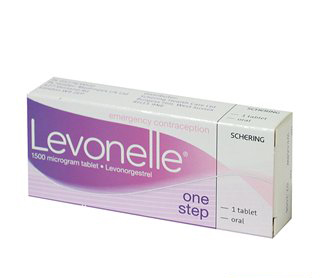A French pharmaceutical company has said that the morning after pill may lose effectiveness in women who weigh 75 kilos and over
The warning, from French pharmaceutical company HR Pharma came after a 2011 study from the University of Edinburgh that revealed the morning after pill may lose effectiveness in women who weigh over 75 kilos (11 stone 11 lbs). It found it may not work at all for those over 80 kilos (12 stone 8 lbs) or with higher BMI, usually of 30 or more.
HR Pharma make Norlevo, a morning after pill brand sold in France with the active ingredient, levonorgestrel (which was the subject of the study). This is the same ingredient in Levonelle, the UK’s morning-after pill brand.
Company boss Frederique Welgryn said that while the results of the study conducted by the Edinburgh University in 2011 were ‘quite surprising’, the last few years have seen ‘a lot of discussions’ about contraceptives’ lack of efficacy in overweight or obese women.
It’s expected that labelling on Norlevo in France will change to reflect the findings in 2014 and now the US Food and Drug Administration (FDA) have said they are reviewing products in the US market and putting plans forward to change the labelling on the products that contain levonorgestrel.
In the UK, the morning after pill is called Levonelle and its active ingredient is also levonorgestrel which means it indeed may be ineffective in overweight or obese women, according to these findings.
Healthista talked to The Family Planning Association (FPA) about what British women should do in light of the new warning. The FPA’s clinical and information lead Lynn Hearton said the following:
‘Previous research has shown that for some women with a higher BMI, Levonelle may be less effective, though there has not been enough hard evidence to completely discount other possible factors.
‘We have not been told to change the advice we give so far in the UK, but if any women with a BMI of at least 30 are concerned they should speak to their GP or a contraception or sexual health clinic.
‘An alternative method of emergency contraception which can be very effective is having an IUD. This is a small plastic and copper device which can be fitted in the uterus up to five days (120 hours) after unprotected sex or within five days of the earliest time you could have released an egg.’
‘It is particularly important we don’t put some women off taking emergency contraception because they think it won’t work anyway. It is always better to use some form of emergency contraception than none at all to prevent an unplanned pregnancy.’

Like this article? Sign up to our newsletter to get more articles like this delivered straight to your inbox.






















































